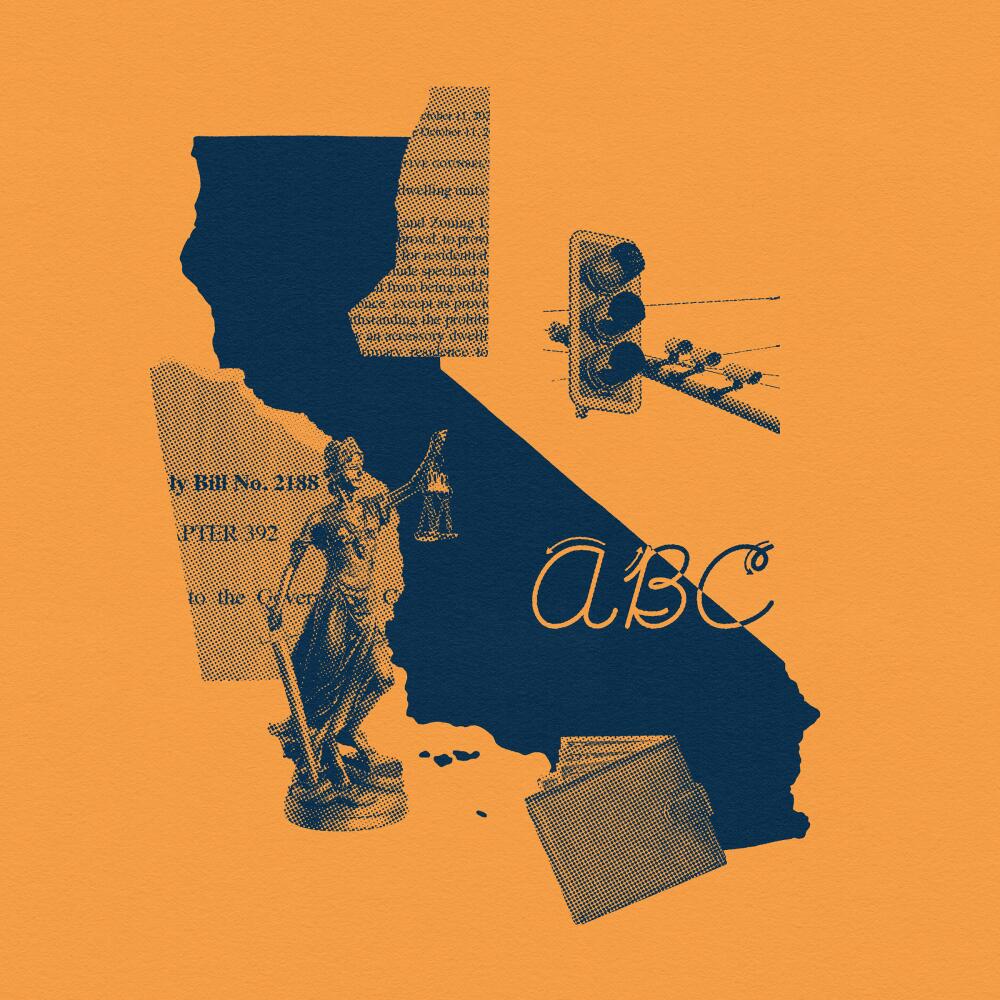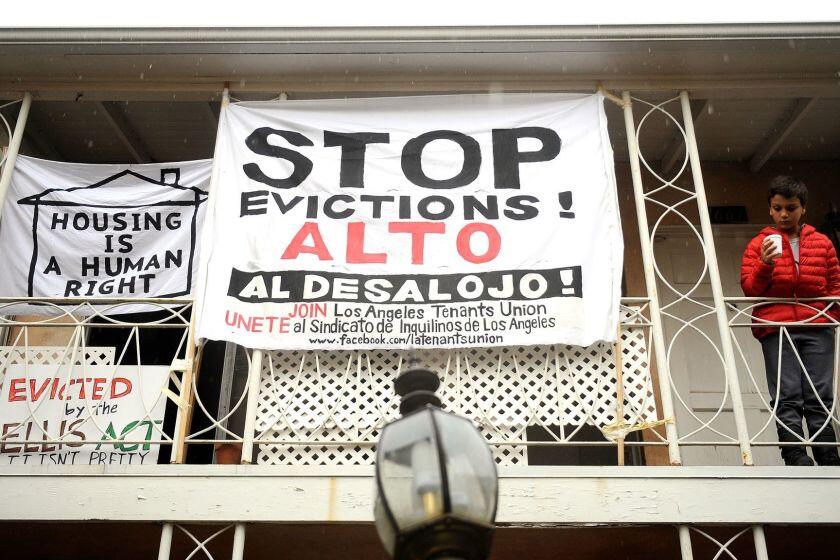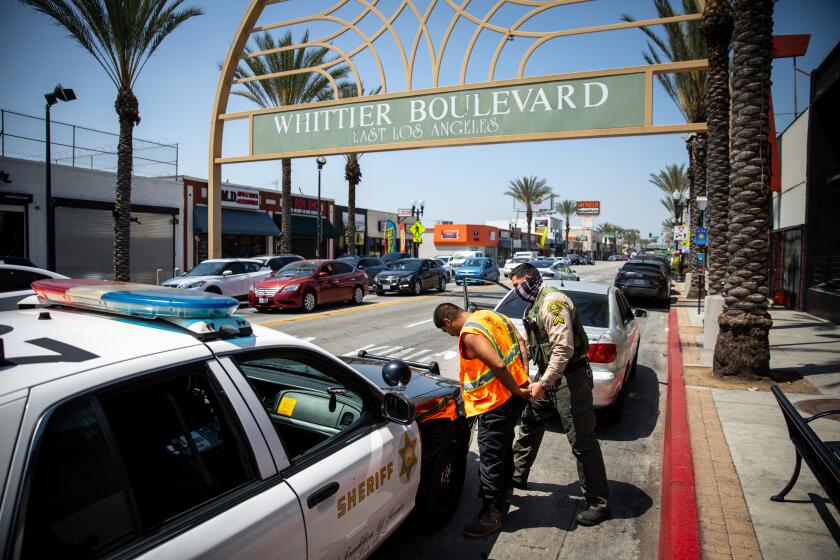
SACRAMENTO — It’s January again, which means hundreds of new laws take effect in California.
Many of them are unlikely to make much difference in your life. California now has an official state bat (the pallid bat) thanks to one new law, and an official state mushroom (the golden chanterelle) thanks to another.
But other laws could have a larger impact. Here are some ways they could affect you at home, at work, at school and on the road. These laws take effect Jan. 1 unless otherwise noted.
At home
You can sell an ADU like a condo: Assembly Bill 1033 allows Californians to buy and sell accessory dwelling units, also known as granny flats, as condominiums. That means property owners can construct an ADU on their land and sell it separately, following the same rules that apply to condos. The goal is to give more people the opportunity to own their own homes in a state with a severe shortage of housing.
It will be harder to find gas-powered yard tools: Assembly Bill 1346, passed in 2021, requires phasing out the sale of small gas-powered engines — including those in leaf blowers, lawn mowers, weed trimmers and chain saws — beginning in 2024. These engines create as much smog-causing pollution in California as light-duty passenger cars, according to state air regulators. Phasing out such equipment — by requiring that those of model years 2024 and later be powered with electricity or another clean energy — is part of the state’s plan to transition to a carbon-free economy. People can still use gas-powered tools that they already have and buy used gas-powered tools.
You could pay a smaller security deposit: Assembly Bill 12 limits the amount landlords can charge for security deposits to no more than one month’s rent, beginning July 1. Previously landlords could charge two months of rent for a security deposit, but that made it hard for many people in high-rent cities to find affordable housing.
California Gov. Gavin Newsom this year has signed several new tenant-protection bills into law, including a measure to lower security deposits. He also vetoed legislation to construct social housing projects.
At work
You may get a raise: The minimum wage in California rises by 50 cents to $16 an hour on Jan. 1. (Several cities, including Los Angeles, have a higher minimum wage than the state, and many of them are also going up on Jan. 1 — this list shows how much.) Fast-food workers statewide will see their wages rise to $20 an hour beginning on April 1 under Assembly Bill 1228. Workers at large hospitals and healthcare facilities will get a minimum wage boost to $23 an hour on June 1 under Senate Bill 525.
You may get more paid sick days: Workers will get at least five sick days under Senate Bill 616, an increase from the earlier minimum of three paid sick days. Labor unions lobbied heavily for the increase, which large employers opposed citing the increased cost. Some cities already require more paid sick time, including Los Angeles, where employers must provide at least six paid days of sick leave.
You can take time off for a miscarriage: Companies with at least five employees will have to allow workers to take at least five days off to grieve a “reproductive loss” under Senate Bill 848. That includes a miscarriage, stillbirth, failed adoption, failed surrogacy or unsuccessful assisted reproduction, such as an in vitro fertilization or intrauterine insemination. Workers can take up to 20 days off per year for reproductive bereavement leave. Both parents are eligible.
Your boss can’t ask whether you’ve used weed: Employers can’t ask workers or job applicants about their prior cannabis use under Senate Bill 700, and any information they may glean about marijuana use from an applicant’s criminal record can’t be used to discriminate against them. Under Assembly Bill 2188, employers can’t discriminate against workers for using cannabis while off duty and away from work. Employers can still prohibit workers from being high on the job, and the law does not apply to federal contractors or construction businesses.
Newsom signs into law a bill that will make it illegal for California employers to discriminate against workers for cannabis use outside of work.
At school
Kids will have to learn cursive: Assembly Bill 446 requires that handwriting instruction in elementary schools include cursive, a skill that has fallen out of practice among a generation growing up typing on cellphones and laptops. Educators who supported passage of the law contended that writing by hand helps children learn to read, spell and build their vocabularies in ways that typing does not.
Students will learn to spot fake news: Assembly Bill 873 requires public school students to take media literacy courses to learn to identify fake news and discern legitimate news articles from paid advertising on the internet. The lessons — a response to the pervasive use of social media by young people — will be incorporated in English language arts, mathematics, science, history and social science curricula.
Requied media literacy courses will slowly be integrated into the curriculum of California students from kindergarten through high school.
On the road
Drivers face a new way of getting busted for speeding: The cities of Los Angeles, San Jose, Oakland, Glendale, Long Beach and San Francisco will be allowed to install speed cameras near schools, streets with a lot of car crashes and areas known for street racing. Under Assembly Bill 645, drivers can be fined $50 for speeding 11 to 15 mph over the limit, with charges rising to $500 for going more than 100 mph.
Police will give a reason for traffic stops: Police officers will have to tell drivers why they’ve been pulled over before questioning them on any subject under Assembly Bill 2773. The law is meant to reduce the police practice of making “pretextual stops,” in which officers use a minor infraction as the basis to pull someone over and investigate other potential crimes.
The law seeks to curb ‘pretextual stops,’ in which police use a minor infraction as the basis to make a stop and investigate other possible crimes.
Watch L.A. Times Today at 7 p.m. on Spectrum News 1 on Channel 1 or live stream on the Spectrum News App. Palos Verdes Peninsula and Orange County viewers can watch on Cox Systems on channel 99.
More to Read
Sign up for Essential California
The most important California stories and recommendations in your inbox every morning.
You may occasionally receive promotional content from the Los Angeles Times.















